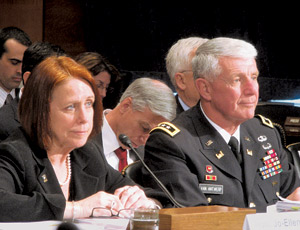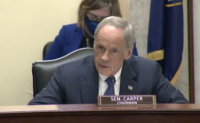After a long delay, the Army Corps of Engineers’ first rewrite in 28 years of its “Principles and Guidelines” for evaluating water projects is expected to be released in June, top Army officials say. The new standards will be a major shift away from the present P&G, issued in 1983, which said the sole federal water-resources planning objective is “to contribute to national economic development” while being “consistent with protecting the nation’s environment.”

Jo-Ellen Darcy, assistant secretary of the Army for civil works, told a Senate subcommittee on March 31 that the revision will put projects’ environmental benefits and social impacts “more on an equal footing” with their economic benefits.
John Doyle, special counsel with law firm Jones Walker, says, “[‘The Principles and Guidelines’] purport to set the rules for how planning is to occur, how project alternatives are to be identified and, maybe most importantly, how those project alternatives are to be analyzed and evaluated one against the other and the ‘best’ project selected.” Congress in 2007 directed the Corps to redo the P&G by December 2009 to ensure planners weigh a project’s public-safety impacts and consider non-structural types of projects.
Lt. Gen. Robert L. Van Antwerp, the Corps commander, says the new document, to be renamed “Principles and Requirements,” will apply to all federal agencies and provide a context for detailed guidelines. Steven L. Stockton, Corps civil works director, says agency-specific supplements will be provided to indicate which programs, projects and activities the new guidelines cover.
In 2008, the Bush administration proposed P&G changes, which were not made final. In late 2009, the Obama administration proposed “objectives, principles and standards.” But a December 2010 National Research Council critique said that proposal lacked clarity and was “inconsistent with generally accepted application of benefit-cost analysis.”
The National Waterways Conference says the 2009 rewrite doesn’t meet the 2007 legislative mandate and runs counter to President Obama’s Jan. 18 directive that regulations not be burdensome. NWC is seeking a White House review.
But Dave Sanford, American Association of Port Authorities’ director of navigation policy and legislation, says, “Every navigation project has a significant environmental component, and recognizing those benefits … in the overall justification for the project makes for a more complete analysis.”



Post a comment to this article
Report Abusive Comment